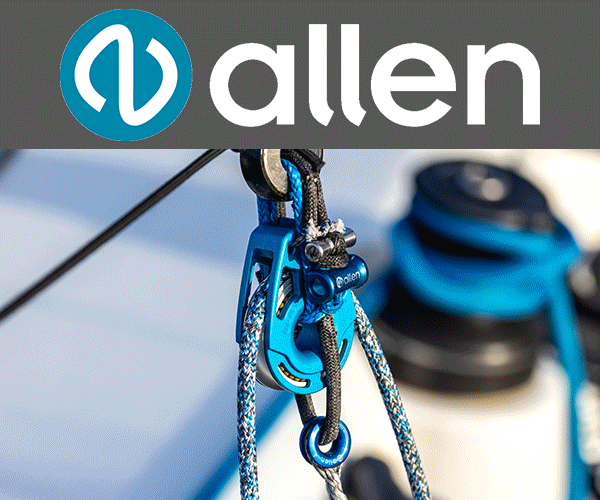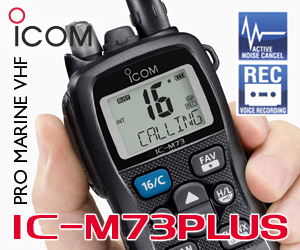Trapezing and Windward Boat |
Post Reply 
|
Page <1234 5> |
| Author | |||||
ClubRacer 
Far too distracted from work 
Joined: 26 Sep 15 Online Status: Offline Posts: 210 |
 Post Options Post Options
 Quote Quote  Reply Reply
 Topic: Trapezing and Windward Boat Topic: Trapezing and Windward BoatPosted: 30 Mar 22 at 5:15pm |
||||
|
How about pre-start inside the prep and instead of using your body you use the boat to heal on top of you so that it becomes flat when you sheet in. You make contact with the tip of your mast (un-intentionally)? No change in course is made.
Is that the same as after completing a tight lee-bow tack, then bringing the boat on top of you to generate more dirty air and contact is made at the tip of the mast (un-intentionally)?
Edited by ClubRacer - 30 Mar 22 at 6:55pm |
|||||
 |
|||||
sargesail 
Really should get out more 
Joined: 14 Jan 06 Location: United Kingdom Online Status: Offline Posts: 1459 |
 Post Options Post Options
 Quote Quote  Reply Reply
 Posted: 30 Mar 22 at 6:42pm Posted: 30 Mar 22 at 6:42pm |
||||
I think this really helps. Imagine in the pre-start your boat is heeled, as is the boat to windward, such that, hen as leeward you trigger pull the boat flat you hit the mast of windward which is actually above your hull. Surely no one would argue that in this situation 16.1 applies…..but it’s the same thing as going out on the wire….leeward is simply adopting a seaman like way f sailing the boat! |
|||||
 |
|||||
Brass 
Really should get out more 
Joined: 24 Mar 08 Location: Australia Online Status: Offline Posts: 1151 |
 Post Options Post Options
 Quote Quote  Reply Reply
 Posted: 30 Mar 22 at 11:20pm Posted: 30 Mar 22 at 11:20pm |
||||
There's no doubt that W does not keep clear. Contact almost always proves failure to keep clear. It was the 'already' I was balking at. In the 1/4 inch example, crew could possibly be in a different plane to the hull of W (and not in amongst her shrouds). I don't think that the definition of keep clear necessarily works. I just think that somewhere around the 1/4 inch mark, give or take an inch, L needs to take avoiding action. That gets you there. Anyone want to argue that trapeze not going to full stretch is not an action? Crew going out on trapeze may be a normal act of seamanship, not to be unexpected. Otherwise Case 73 |
|||||
 |
|||||
Brass 
Really should get out more 
Joined: 24 Mar 08 Location: Australia Online Status: Offline Posts: 1151 |
 Post Options Post Options
 Quote Quote  Reply Reply
 Posted: 31 Mar 22 at 2:09am Posted: 31 Mar 22 at 2:09am |
||||
Yup
Different. When you reach your close hauled course, you get a rule 15 obligation to give W room to keep clear Edited by Brass - 31 Mar 22 at 2:10am |
|||||
 |
|||||
sargesail 
Really should get out more 
Joined: 14 Jan 06 Location: United Kingdom Online Status: Offline Posts: 1459 |
 Post Options Post Options
 Quote Quote  Reply Reply
 Posted: 31 Mar 22 at 6:41am Posted: 31 Mar 22 at 6:41am |
||||
|
Anyone want to argue that trapeze not going to full stretch is not an action? Crew going out on trapeze may be a normal act of seamanship, not to be unexpected. Otherwise Case 73[/QUOTE] Brass - wondered why you raise going out on the trapeze as an action? It doesn’t seem to come within the scope of the use of ‘action’ in the definition of Keep clear, nor rules 15 or 16? Edited by sargesail - 31 Mar 22 at 6:42am |
|||||
 |
|||||
Brass 
Really should get out more 
Joined: 24 Mar 08 Location: Australia Online Status: Offline Posts: 1151 |
 Post Options Post Options
 Quote Quote  Reply Reply
 Posted: 31 Mar 22 at 7:27am Posted: 31 Mar 22 at 7:27am |
||||
|
Quibbling around with words.
Going out on trapeze must certainly be an 'action', but obviously not an 'avoiding action' Is 'not [stretching] out on the trapeze [to avoid touching W]' an 'action? See rule 62.1(a). Edited by Brass - 31 Mar 22 at 7:28am |
|||||
 |
|||||
sargesail 
Really should get out more 
Joined: 14 Jan 06 Location: United Kingdom Online Status: Offline Posts: 1459 |
 Post Options Post Options
 Quote Quote  Reply Reply
 Posted: 31 Mar 22 at 12:06pm Posted: 31 Mar 22 at 12:06pm |
||||
|
Are understood - so you are suggesting that leeward could be in breach of 14 if it doesn’t take the available option of not stretching out?
Which might be the case….but it would be my contention that in most cases 14. a would apply….a crew going out needn’t check that space to windward, and their first apprehension of contact would probably be head on jib r whatever. And that there would be few cases where exoneration under 14 b wouldn’t apply…..in fact notwithstanding US case 65, I would say that damage or injury would not have been caused by soft flesh on windward boat. |
|||||
 |
|||||
JimC 
Really should get out more 

Joined: 17 May 04 Location: United Kingdom Online Status: Offline Posts: 6662 |
 Post Options Post Options
 Quote Quote  Reply Reply
 Posted: 31 Mar 22 at 1:08pm Posted: 31 Mar 22 at 1:08pm |
||||
I've always sailed fast and delicate boats, so I accept I am far less comfortable with very close quarters sailing than the majority. There's danger of too much logic chopping here, which is always dangerous when dealing with the rules, but what precisely is avoiding action? If the Right of Way boat has to modify her actions (and does forced inaction count as that?) because of the presence of the Give Way boat then I find it very hard to accept that the Give Way boat is keeping clear. |
|||||
 |
|||||
Brass 
Really should get out more 
Joined: 24 Mar 08 Location: Australia Online Status: Offline Posts: 1151 |
 Post Options Post Options
 Quote Quote  Reply Reply
 Posted: 31 Mar 22 at 1:36pm Posted: 31 Mar 22 at 1:36pm |
||||
SEE GMLs post second in the thread. L breaks rule 14. No beg-you-pardons.
Nah, don't buy that. L, like everybody else is required to keep a good lookout.
That I do buy<g>.
Don't get your reference. USA Appeal 65 is about one incident or two, which I don't think applies here, and the more relevant Appeal for you is RYA 2003/3. Did you mean US Appeal 45? That's about anticipation, and I don't think that's relevant here either.
Yes, but there might be some injury caused by the windward boat on some soft flesh. |
|||||
 |
|||||
Brass 
Really should get out more 
Joined: 24 Mar 08 Location: Australia Online Status: Offline Posts: 1151 |
 Post Options Post Options
 Quote Quote  Reply Reply
 Posted: 31 Mar 22 at 1:55pm Posted: 31 Mar 22 at 1:55pm |
||||
I'm not for one moment suggesting that W isn't failing to keep clear. What I'm saying, and I think you're saying above, is that that is because L needs to take avoiding action, the first part of Definition:Keep Clear, not the second part 'can't change course in either direction '. There's no doubt that if the crew of L swings in, or bends, or moves theyr hand or head to avoid touching W, that's avoiding action. What I'm playing around with is whether ceasing to extend, or, as you put it 'forced inaction' is 'action. |
|||||
 |
|||||
Post Reply 
|
Page <1234 5> |
| Forum Jump | Forum Permissions  You cannot post new topics in this forum You cannot reply to topics in this forum You cannot delete your posts in this forum You cannot edit your posts in this forum You cannot create polls in this forum You cannot vote in polls in this forum |
Bulletin Board Software by Web Wiz Forums® version 9.665y
Copyright ©2001-2010 Web Wiz
Change your personal settings, or read our privacy policy
Copyright ©2001-2010 Web Wiz
Change your personal settings, or read our privacy policy







-(1)-202408140552.gif)

















 Printable Version
Printable Version Delicious
Delicious Digg
Digg Facebook
Facebook Furl
Furl Google
Google MySpace
MySpace Newsvine
Newsvine reddit
reddit StumbleUpon
StumbleUpon Twitter
Twitter Windows Live
Windows Live Yahoo Bookmarks
Yahoo Bookmarks Topic Options
Topic Options